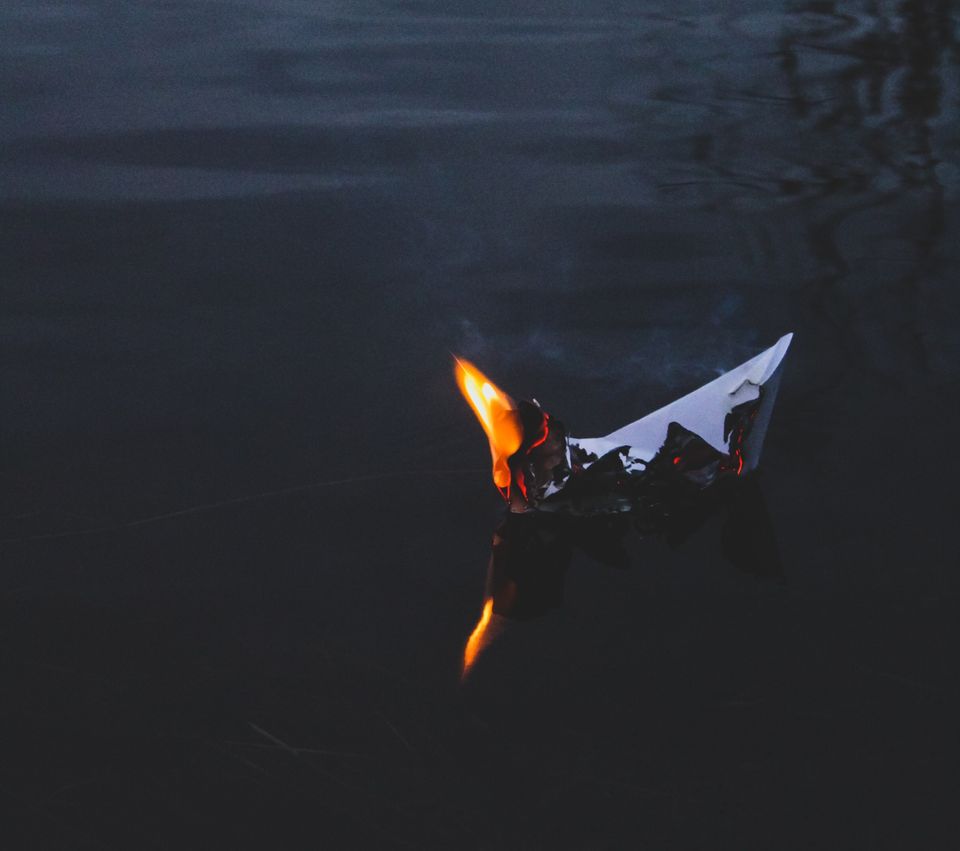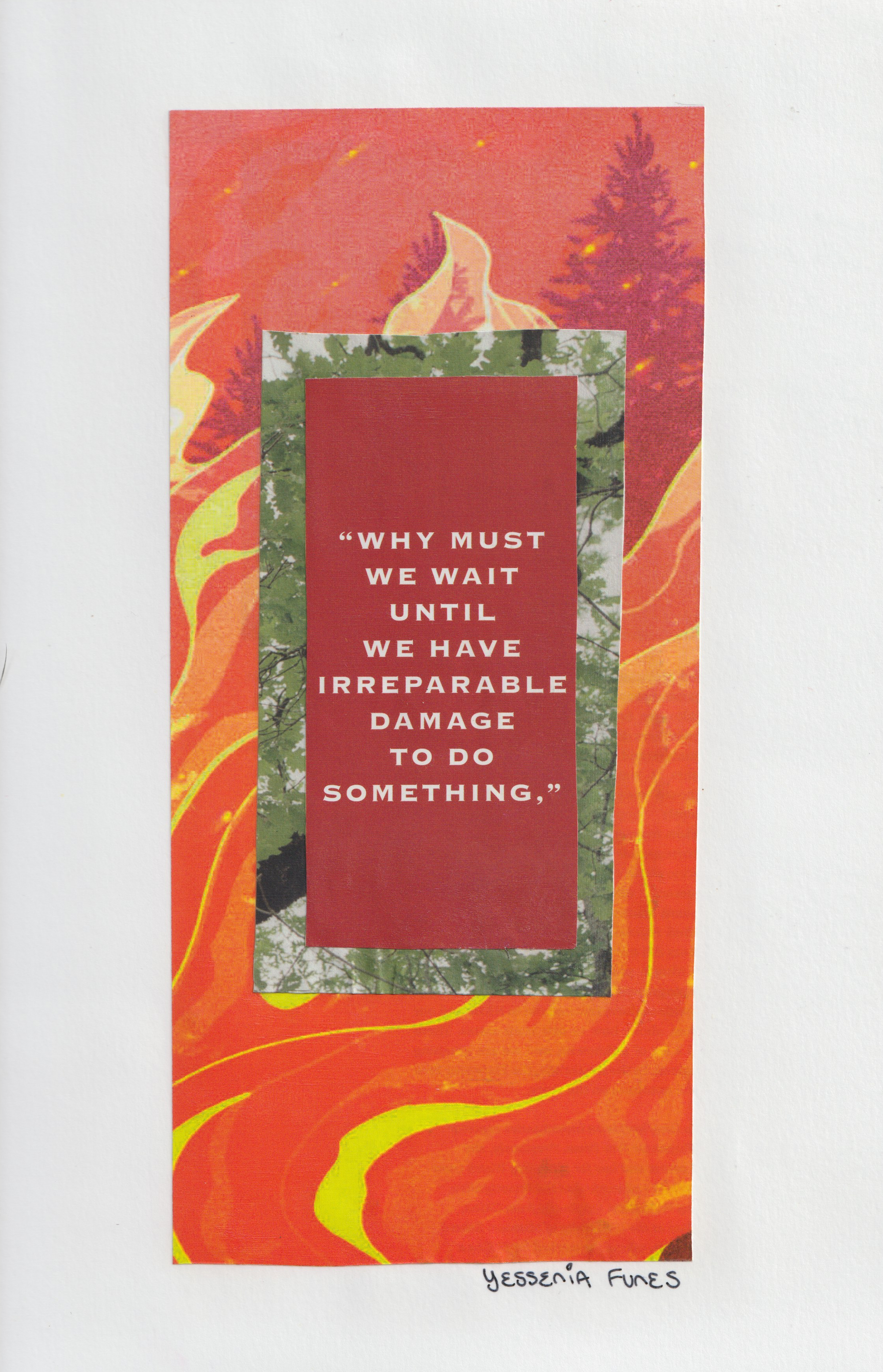The Youth Won't Let Us Burn

LISTENING: to some kids laughing on the street below
FEELING: surprisingly optimistic
SEEING: my kitty stretch out on his favorite chair
Here's some dope news: I'll be co-teaching in the fall at the Craig Newmark Graduate School of Journalism at CUNY. Woo! The course? Covering the Climate Crisis.
Oh, how the stars align. A friend recently asked me what I would've been had I not become a journalist. I told him either a) a graphic designer because I was addicted to developing MySpace layouts as a teen or b) a teacher because I have an immense soft spot for the youth, especially my nephew and nieces. I wasn't exactly thinking about graduate school students when I answered his question — but I do love giving back to the next generation.
Funny enough, that same friend that night brought up the historic court case happening over in Montana: Held v. Montana. Have y'all been following? Sixteen young people are suing the state of Montana over their constitutional right to "the right to a clean and healthful environment." They show us what's possible when the people don't back down from the fossil fuel companies trying to set the world on fire.
Theirs is the first constitutional climate trial in U.S. history, according to Dharna Noor, the fossil fuels and climate reporter at The Guardian. She's also a homie. When she texted me to congratulate me on becoming an adjunct professor, I asked her about covering the landmark case. Luckily for me, I caught her right before her flight back home took off.
Welcome to Possibilities, a creative climate newsletter that explores the possibilities that lie where crisis meets community. I’m Yessenia Funes, someone who is no longer a youth herself but has many in her life whom she loves dearly.
Though the Montanan plaintiffs launched their lawsuit back in 2020, the trial began this week. Dharna was on the ground to witness the case go down in person. Her latest piece for The Guardian detailed the harrowing testimonies of various youth plaintiffs — the troubling possibilities that lie in their future if governments don't take swift action to curb carbon pollution.
“I’m a prisoner in my own home,” said teen Mica, whose asthma keeps him indoors when wildfires pollute local air. (New Yorkers know this reality now, too, as I wrote about for The New Republic last week.) His testimony is one of many to which Dharna bore witness.
"The energy was incredible in the courtroom," she said. "I was so struck by how optimistic these kids were! They detailed all these health impacts they're experiencing and all these anxieties they're feeling due to heat and wildfire smoke and drought. But each kid who testified also spoke about how empowered the case has made them feel."
She went on to tell me about Montana's long history with coal. As it turns out, this state — best known for its natural beauty and vast wilderness — is also the fourth-largest coal-producing state.
"[Coal is] a thing that gives a lot of people a sense of identity here," Dharna told me. "It's a huge part of what it means to be a Montanan for a lot of people."
There's also a pride in the state's majestic landscape, which coal mining threatens. You can see how this might create tension, right? The state's original constitution leaned heavily toward industry, and the people weren't having it. Not then and certainly not now. Activists in the 1970s pushed the state to write a new constitution — one that would enshrine environmental protections for future generations. They made today's ongoing lawsuit possible with this language.
When things start to feel dark — as they were feeling last week — I try to think of young activists. When I was their age, I wasted my time sulking over boys. Meanwhile, they're over here taking on an entire state. They're working to ensure their generation has endless possibilities available, just as the generations before them did.
They inspire me. They challenge the rest of us to do better.
I see them, and I think of my nephew, who turned 14 this week. He has the rest of his life ahead of him. They're fighting for his future, too. I think of my 7-year-old niece, who wasn't sure how to feel about the apocalyptic skies last week. She told me some of her friends were scared but that she wasn't.
I think of how fearless today's youth must be to wake up every morning and confront the modern-day world. I think of how poorly we adults have failed them. They won't let us get away with it any longer. And I'm glad.
Ignorance isn't bliss. It's a death sentence. 🌀
Be sure to upgrade your membership if you're not a paid subscriber. Editions like these — featuring exclusive interviews — will be available only to paid subscribers starting in July. Free members will still receive the newsletter, but they won't be able to read past the "Welcome to Possibilities" blurb. Sorry, love you, but mama's got bills to pay.
Currently Reading
Gothamist has got the data on how last week's air quality crisis affected Black and Brown New Yorkers hardest.
How four Indigenous children in Colombia miraculously survived 40 days in the Amazon jungle after their airplane crashed.
"For all the optimism about it being a necessary tool to reach net zero, direct air capture’s story has yet to be written," writes my pal Brian Kahn in his debut for Bloomberg.
Is geothermal the future of home cooling and heating? Heatmap News explores.
I cannot wait to read Elliot Page's book "Pageboy" after this column about him in The Los Angeles Times.
The Nile versus the Amazon: a reminder of how complicated and nuanced even something as measured as science can be. Which river do you think is longer?
I had no idea that mass hysteria could trigger such health scares. Have y'all read "The Dreamers" by Karen Thompson Walker? Because this Business Insider story is giving serious "The Dreamers" vibes.
For any second-generation daughter struggling to relate to her mother she so deeply loves.
Collage

Why wait?
Why fail?
Why expect that
others will prevail?
Why delay?
Why deny?
Why can't we shut down
their lies?
Rest in Power
While we can't say for certain that climate change led to these specific events (we need attribution studies for that), we do know that the Earth's rising temperatures are already creating more disasters like these.
In Peru, a dengue fever outbreak has left at least 200 people dead. Climate change is creating the sorts of conditions that allow disease vectors (like mosquitoes) to thrive. This is the country's worst outbreak on record.
At least five people in Abidjan, Côte d'Ivoire, are dead after severe floods and landslides earlier this week.
In Cuba, a 24-hour deluge of rain has killed at least six people while thousands more have been displaced.
Cyclone Biparjoy hasn't even made landfall yet, but it has already claimed the lives of four boys in Mumbai, India, who drowned in the rough waters Monday. At least three other people in India have died. The intense weather system also brought flash floods and winds to Pakistan where over 20 died. Similar weather in nearby Iran has also cut short at least five other lives.
Wildfires in Kazakstan have killed at least 15 people, most of whom were forest rangers fighting the flames. The public is blaming government corruption and mismanagement for the high death toll.
At least 79 people have been declared dead after a ship carrying primarily Afghanistan and Pakistani refugees capsized. We know that the climate crisis is separating more and more families as crops fail or wars escalate, pushing individuals to make dangerous treks to new countries that might offer some financial relief for their loved ones. I walked along a migrant path in the southwestern U.S. last year and wrote about it for Atmos here.
See you next week. xx
- Yessenia


Comments ()